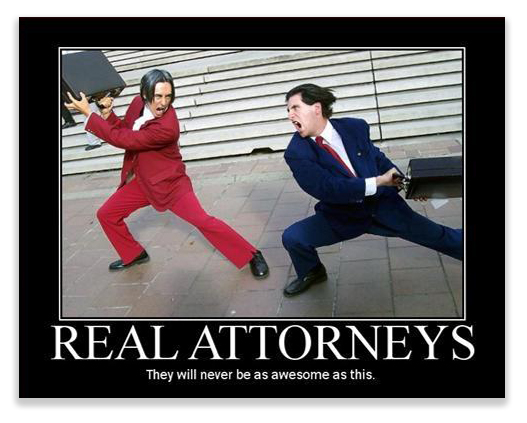We post news and comment on federal criminal justice issues, focused primarily on trial and post-conviction matters, legislative initiatives, and sentencing issues.

PLEA AGREEMENT BY COMMITTEE
 Elvin Torres-Estrada hired a pair of New York City lawyers to represent him in a Puerto Rican drug conspiracy case. When out-of-district laws come to town in a case like this, they have a local lawyer sponsor them to appear pro haec vice, literally “for this event,” without having to get admitted to practice before the district court. Elvin hired a local lawyer, Garcia, to do so and to act as local counsel to his out-of-town hired guns.
Elvin Torres-Estrada hired a pair of New York City lawyers to represent him in a Puerto Rican drug conspiracy case. When out-of-district laws come to town in a case like this, they have a local lawyer sponsor them to appear pro haec vice, literally “for this event,” without having to get admitted to practice before the district court. Elvin hired a local lawyer, Garcia, to do so and to act as local counsel to his out-of-town hired guns.
Early on, Elvin’s lawyers concluded that he might benefit from a joint plea deal with one of his co-defendants. With Elvin’s OK, the two attorneys began coordinating with the co-D’s attorneys and learned the government had refused a proposed 11-year term of imprisonment for the co-defendant and would be seeking a sentencing recommendation for Elvin roughly two years longer than whatever the co-D ultimately got. Local lawyer Garcia did not attend most of their meetings with the co-D’s people, consistent with his limited role as local counsel.
The government offered Elvin 188 months. Elvin’s NYC lawyers got the co-D’s lawyers to agree that the defendants would jointly counteroffer with 144 for the co-D and 168 for Elvin. Elvin reluctantly OK’d the deal. But before the scheduled meeting with the government, Garcia met with his client and talked him into authorizing a 156-month counter instead of the previously agreed-to 168. When the New York lawyers found out, they convinced Elvin to raise it to 164.
Garcia then blindsided the NYC lawyers by throwing the 156-month counteroffer out in the middle of the meeting anyway, and then upping it to 162 when the government rejected the 156 months out of hand. The government said it would “think about” it.
Plea negotiations broke down, the government obtained a second indictment against Elvin for a separate conspiracy, and he ended up with a 288-month sentence. Elvin filed a 28 USC § 2255 petition arguing that Garcia rendered ineffective assistance by undercutting the New York lawyers’ careful plea negotiations.
Last week, the 1st Circuit upheld the denial of Elvin’s 2255.
 The Circuit seemed to acknowledge that Garcia was a bull in a china shop but said that he had compromised with a counteroffer that was only two months lower than what Elvin had authorized and that the government “still responded by saying he would think about it.” The 1st said, “The circumstances surrounding the meeting thus diminish the force of Elvin’s claim that Garcia’s disruptive actions were incompatible with an attempt by competent counsel to secure the best possible deal for his client. Given the government’s stated willingness at the meeting to consider the rogue 162-month proposal, one could reasonably say that Garcia’s aggressive (though discourteous) tactics had advanced the plea negotiations and, accordingly, were within the range of competence demanded of attorneys in criminal cases.”
The Circuit seemed to acknowledge that Garcia was a bull in a china shop but said that he had compromised with a counteroffer that was only two months lower than what Elvin had authorized and that the government “still responded by saying he would think about it.” The 1st said, “The circumstances surrounding the meeting thus diminish the force of Elvin’s claim that Garcia’s disruptive actions were incompatible with an attempt by competent counsel to secure the best possible deal for his client. Given the government’s stated willingness at the meeting to consider the rogue 162-month proposal, one could reasonably say that Garcia’s aggressive (though discourteous) tactics had advanced the plea negotiations and, accordingly, were within the range of competence demanded of attorneys in criminal cases.”
 Even if Garcia’s performance had been deficient, the Circuit said, Elvin had not been prejudiced. The record “makes plain that Garcia’s conduct did not result in termination of the plea-bargaining process. Rather… after [the government] was told that Garcia “spoke out of turn and inconsistent with Elvin’s instructions,” it “agreed to revisit” the possibility of lowering the offers to both defendants. And more than two weeks after Garcia’s hijacking of the negotiation session, the original offer of fifteen years/eight months (188 months) remained on the table.”
Even if Garcia’s performance had been deficient, the Circuit said, Elvin had not been prejudiced. The record “makes plain that Garcia’s conduct did not result in termination of the plea-bargaining process. Rather… after [the government] was told that Garcia “spoke out of turn and inconsistent with Elvin’s instructions,” it “agreed to revisit” the possibility of lowering the offers to both defendants. And more than two weeks after Garcia’s hijacking of the negotiation session, the original offer of fifteen years/eight months (188 months) remained on the table.”
“In sum,” the Circuit held, “we need not view Garcia’s disruptive performance in advance of, and during, the meeting as entirely defensible to conclude that Elvin has failed to establish a violation of his 6th Amendment right to the effective assistance of counsel…
Torres-Estrada v. United States, Case No. 19-1485, 2024 U.S. App. LEXIS 30919 (1st Cir., December 6, 2024)
– Thomas L. Root

